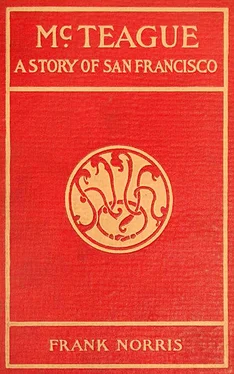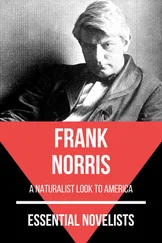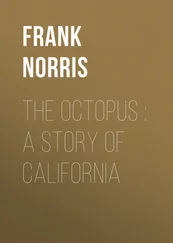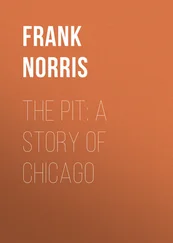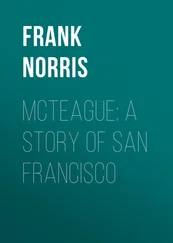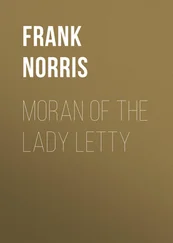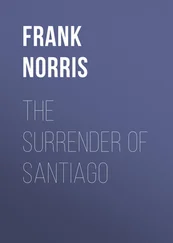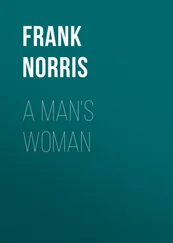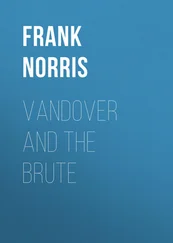Frank Norris - McTEAGUEA Story of San Franciscoby
Здесь есть возможность читать онлайн «Frank Norris - McTEAGUEA Story of San Franciscoby» весь текст электронной книги совершенно бесплатно (целиком полную версию без сокращений). В некоторых случаях можно слушать аудио, скачать через торрент в формате fb2 и присутствует краткое содержание. Год выпуска: 1899, Жанр: Классическая проза, на английском языке. Описание произведения, (предисловие) а так же отзывы посетителей доступны на портале библиотеки ЛибКат.
- Название:McTEAGUEA Story of San Franciscoby
- Автор:
- Жанр:
- Год:1899
- ISBN:нет данных
- Рейтинг книги:5 / 5. Голосов: 1
-
Избранное:Добавить в избранное
- Отзывы:
-
Ваша оценка:
- 100
- 1
- 2
- 3
- 4
- 5
McTEAGUEA Story of San Franciscoby: краткое содержание, описание и аннотация
Предлагаем к чтению аннотацию, описание, краткое содержание или предисловие (зависит от того, что написал сам автор книги «McTEAGUEA Story of San Franciscoby»). Если вы не нашли необходимую информацию о книге — напишите в комментариях, мы постараемся отыскать её.
McTEAGUEA Story of San Franciscoby — читать онлайн бесплатно полную книгу (весь текст) целиком
Ниже представлен текст книги, разбитый по страницам. Система сохранения места последней прочитанной страницы, позволяет с удобством читать онлайн бесплатно книгу «McTEAGUEA Story of San Franciscoby», без необходимости каждый раз заново искать на чём Вы остановились. Поставьте закладку, и сможете в любой момент перейти на страницу, на которой закончили чтение.
Интервал:
Закладка:
By nine o'clock she had almost finished with the schoolroom. She was down on her hands and knees in the midst of a steaming muck of soapy water. On her feet were a pair of man's shoes fastened with buckles; a dirty cotton gown, damp with the water, clung about her shapeless, stunted figure. From time to time she sat back on her heels to ease the strain of her position, and with one smoking hand, white and parboiled with the hot water, brushed her hair, already streaked with gray, out of her weazened, pale face and the corners of her mouth.
It was very quiet. A gas-jet without a globe lit up the place with a crude, raw light. The cat who lived on the premises, preferring to be dirty rather than to be wet, had got into the coal scuttle, and over its rim watched her sleepily with a long, complacent purr.
All at once he stopped purring, leaving an abrupt silence in the air like the sudden shutting off of a stream of water, while his eyes grew wide, two lambent disks of yellow in the heap of black fur.
"Who is there?" cried Trina, sitting back on her heels. In the stillness that succeeded, the water dripped from her hands with the steady tick of a clock. Then a brutal fist swung open the street door of the schoolroom and McTeague came in. He was drunk; not with that drunkenness which is stupid, maudlin, wavering on its feet, but with that which is alert, unnaturally intelligent, vicious, perfectly steady, deadly wicked. Trina only had to look once at him, and in an instant, with some strange sixth sense, born of the occasion, knew what she had to expect.
She jumped up and ran from him into the little cloakroom. She locked and bolted the door after her, and leaned her weight against it, panting and trembling, every nerve shrinking and quivering with the fear of him.
McTeague put his hand on the knob of the door outside and opened it, tearing off the lock and bolt guard, and sending her staggering across the room.
"Mac," she cried to him, as he came in, speaking with horrid rapidity, cringing and holding out her hands, "Mac, listen. Wait a minute — look here — listen here. It wasn't my fault. I'll give you some money. You can come back. I'll do ANYTHING you want. Won't you just LISTEN to me? Oh, don't! I'll scream. I can't help it, you know. The people will hear."
McTeague came towards her slowly, his immense feet dragging and grinding on the floor; his enormous fists, hard as wooden mallets, swinging at his sides. Trina backed from him to the corner of the room, cowering before him, holding her elbow crooked in front of her face, watching him with fearful intentness, ready to dodge.
"I want that money," he said, pausing in front of her.
"What money?" cried Trina.
"I want that money. You got it — that five thousand dollars. I want every nickel of it! You understand?"
"I haven't it. It isn't here. Uncle Oelbermann's got it."
"That's a lie. He told me that you came and got it. You've had it long enough; now I want it. Do you hear?"
"Mac, I can't give you that money. I–I WON'T give it to you," Trina cried, with sudden resolution.
"Yes, you will. You'll give me every nickel of it."
"No, NO."
"You ain't going to make small of me this time. Give me that money."
"NO."
"For the last time, will you give me that money?"
"No."
"You won't, huh? You won't give me it? For the last time."
"No, NO."
Usually the dentist was slow in his movements, but now the alcohol had awakened in him an ape-like agility. He kept his small eyes upon her, and all at once sent his fist into the middle of her face with the suddenness of a relaxed spring.
Beside herself with terror, Trina turned and fought him back; fought for her miserable life with the exasperation and strength of a harassed cat; and with such energy and such wild, unnatural force, that even McTeague for the moment drew back from her. But her resistance was the one thing to drive him to the top of his fury. He came back at her again, his eyes drawn to two fine twinkling points, and his enormous fists, clenched till the knuckles whitened, raised in the air.
Then it became abominable.
In the schoolroom outside, behind the coal scuttle, the cat listened to the sounds of stamping and struggling and the muffled noise of blows, wildly terrified, his eyes bulging like brass knobs. At last the sounds stopped on a sudden; he heard nothing more. Then McTeague came out, closing the door. The cat followed him with distended eyes as he crossed the room and disappeared through the street door.
The dentist paused for a moment on the sidewalk, looking carefully up and down the street. It was deserted and quiet. He turned sharply to the right and went down a narrow passage that led into the little court yard behind the school. A candle was burning in Trina's room. He went up by the outside stairway and entered.
The trunk stood locked in one corner of the room. The dentist took the lid-lifter from the little oil stove, put it underneath the lock-clasp and wrenched it open. Groping beneath a pile of dresses he found the chamois-skin bag, the little brass match-box, and, at the very bottom, carefully thrust into one corner, the canvas sack crammed to the mouth with twenty-dollar gold pieces. He emptied the chamois-skin bag and the matchbox into the pockets of his trousers. But the canvas sack was too bulky to hide about his clothes. "I guess I'll just naturally have to carry YOU," he muttered. He blew out the candle, closed the door, and gained the street again.
The dentist crossed the city, going back to the music store. It was a little after eleven o'clock. The night was moonless, filled with a gray blur of faint light that seemed to come from all quarters of the horizon at once. From time to time there were sudden explosions of a southeast wind at the street corners. McTeague went on, slanting his head against the gusts, to keep his cap from blowing off, carrying the sack close to his side. Once he looked critically at the sky.
"I bet it'll rain to-morrow," he muttered, "if this wind works round to the south."
Once in his little den behind the music store, he washed his hands and forearms, and put on his working clothes, blue overalls and a jumper, over cheap trousers and vest. Then he got together his small belongings — an old campaign hat, a pair of boots, a tin of tobacco, and a pinchbeck bracelet which he had found one Sunday in the Park, and which he believed to be valuable. He stripped his blanket from his bed and rolled up in it all these objects, together with the canvas sack, fastening the roll with a half hitch such as miners use, the instincts of the old-time car-boy coming back to him in his present confusion of mind. He changed his pipe and his knife — a huge jackknife with a yellowed bone handle — to the pockets of his overalls.
Then at last he stood with his hand on the door, holding up the lamp before blowing it out, looking about to make sure he was ready to go. The wavering light woke his canary. It stirred and began to chitter feebly, very sleepy and cross at being awakened. McTeague started, staring at it, and reflecting. He believed that it would be a long time before anyone came into that room again. The canary would be days without food; it was likely it would starve, would die there, hour by hour, in its little gilt prison. McTeague resolved to take it with him. He took down the cage, touching it gently with his enormous hands, and tied a couple of sacks about it to shelter the little bird from the sharp night wind.
Then he went out, locking all the doors behind him, and turned toward the ferry slips. The boats had ceased running hours ago, but he told himself that by waiting till four o'clock he could get across the bay on the tug that took over the morning papers.
* * * * * * * * * * * * *
Trina lay unconscious, just as she had fallen under the last of McTeague's blows, her body twitching with an occasional hiccough that stirred the pool of blood in which she lay face downward. Towards morning she died with a rapid series of hiccoughs that sounded like a piece of clockwork running down.
Читать дальшеИнтервал:
Закладка:
Похожие книги на «McTEAGUEA Story of San Franciscoby»
Представляем Вашему вниманию похожие книги на «McTEAGUEA Story of San Franciscoby» списком для выбора. Мы отобрали схожую по названию и смыслу литературу в надежде предоставить читателям больше вариантов отыскать новые, интересные, ещё непрочитанные произведения.
Обсуждение, отзывы о книге «McTEAGUEA Story of San Franciscoby» и просто собственные мнения читателей. Оставьте ваши комментарии, напишите, что Вы думаете о произведении, его смысле или главных героях. Укажите что конкретно понравилось, а что нет, и почему Вы так считаете.
